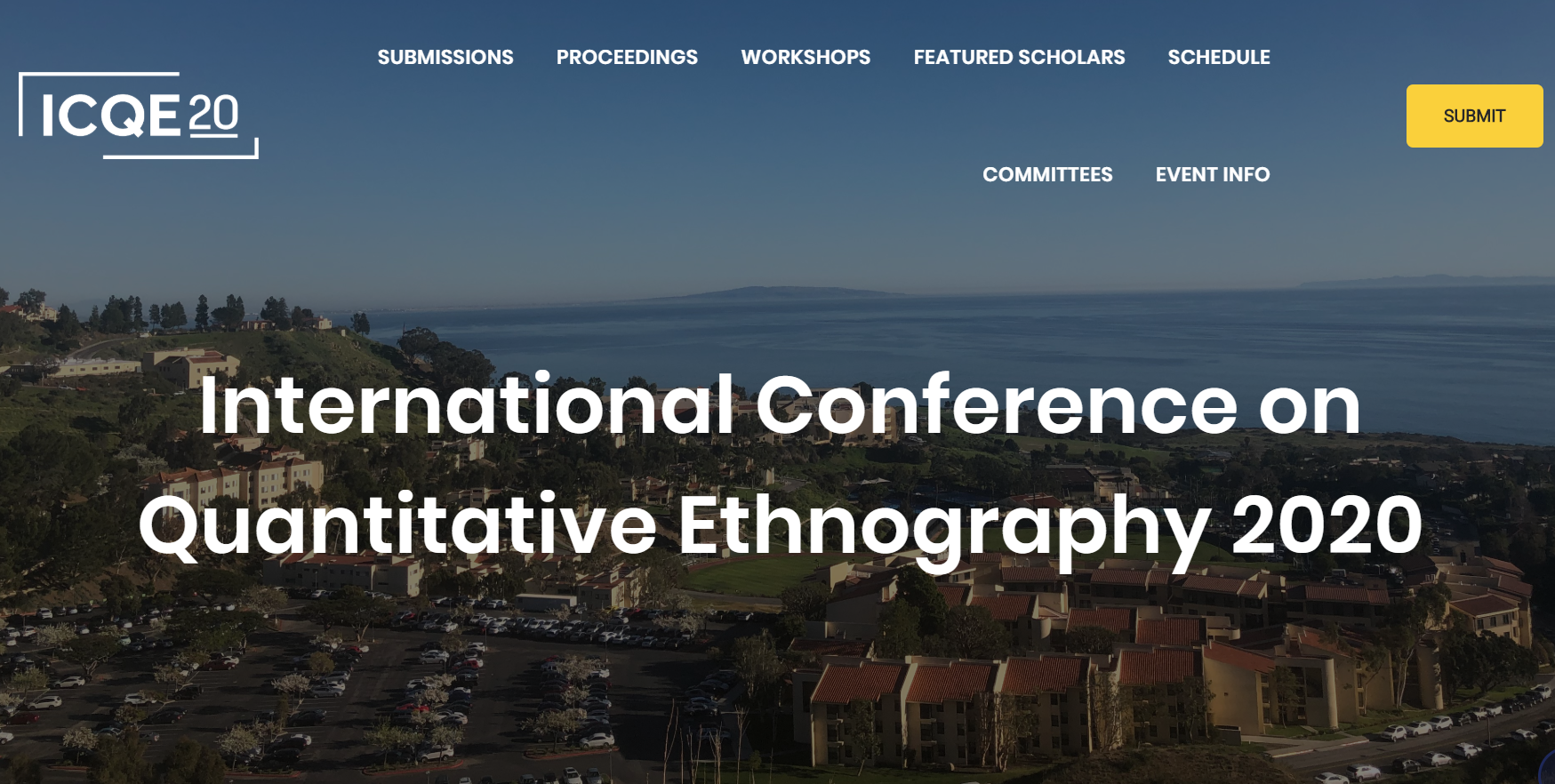ICQE2020-21 | International Conference on Quantitative Ethnography 2020-21 @ICQEConf
January 30, 2021 – February 2, 2021, Session times vary
Pepperdine University, Malibu, CA
Simon Buckingham Shum; Abigail Wooldridge
University of Technology Sydney; University of Illinois Urbana-Champaign

ICQE20-21 Statement on COVID-19
Friends and colleagues--we write to you with an important update about planning for ICQE20. Given the continued severity of the COVID-19 pandemic, we have decided to reschedule the conference for 30 January - 2 February 2021.
Our hope is that by pushing the conference back by three months, we will improve the chances that we can meet in person at Pepperdine University in Malibu, California, USA. We recognize, of course, that if the pandemic continues into the fall, we may still have no choice but to hold the conference remotely. And even if the public health situation improves, some of you may be unable to join us in person due to travel restrictions or personal concerns.
Please be assured that the planning team will make reasonable accommodations so that all members of the QE community who wish to participate in the conference will be able to do so. We hope to meet in person, as community building is one of our primary goals, but we will not risk the health of our community members to do so.
Given this change, we have extended the submission deadline to 1 July 2020. Please note that in order to maintain a feasible review and publication schedule, this is a hard deadline—there will be no more extensions, and all submissions must be received by this date to be eligible for consideration. (For more information about submissions, click here.)
In the event that a hybrid or online-only format becomes necessary, we will modify elements of the program to facilitate participation. Regardless of the format, publication of the proceedings will take place as planned: all accepted papers will be published in the Springer proceedings, and all other contributions will be published in the proceedings supplement.
We have already begun to develop plans for online workshops, a virtual poster fair, and paper presentations that can be accessed remotely either in real time or asynchronously, in case they are needed. We will have a full, detailed plan in place by the time registration opens this fall. Registration fees will, of course, be adjusted in the event that an online conference is necessary.
We hope that you will join us for ICQE20, in whatever form it may take, to continue to build the QE community. In the meantime, stay safe, and please don’t hesitate to contact us with questions or concerns.
Sincerely,
Andrew Ruis, Chair of the ICQE20-21 Program Committee
Eric Hamilton, Chair of the ICQE20-21 Conference Committee
The Second International Conference on Quantitative Ethnography (ICQE20-21) will provide an international forum for researchers to present work, learn new methodological techniques, and network with other scholars working in the new and growing field of quantitative ethnography (QE).
Building on the tremendous success of ICQE19, we encourage work from any discipline, which can include (but is not limited to):
New and innovative techniques for QE, including network analysis, automated coding, and approaches to reliability and validity of quantitative ethnographic analyses
Studies of the relationship between different techniques or methods for conducting QE analyses
Extension of QE techniques to new types of data, fields of study, or research questions
Empirical QE results, whether preliminary, exploratory, or confirmatory
New theoretical issues in QE or reexamination of existing theoretical frameworks
Formative work that describes prospective thinking about planned QE studies
The primary criteria are that work being presented is theoretically and methodologically thoughtful and sound, and helps build the QE community by sharing ideas, methods, resources, and inspiration. The goal of the conference is to promote intellectual exchange, provide mentoring and support for junior researchers, build capacity for diverse leadership and participation in the QE community, and facilitate collaboration across disciplines and geographic contexts


